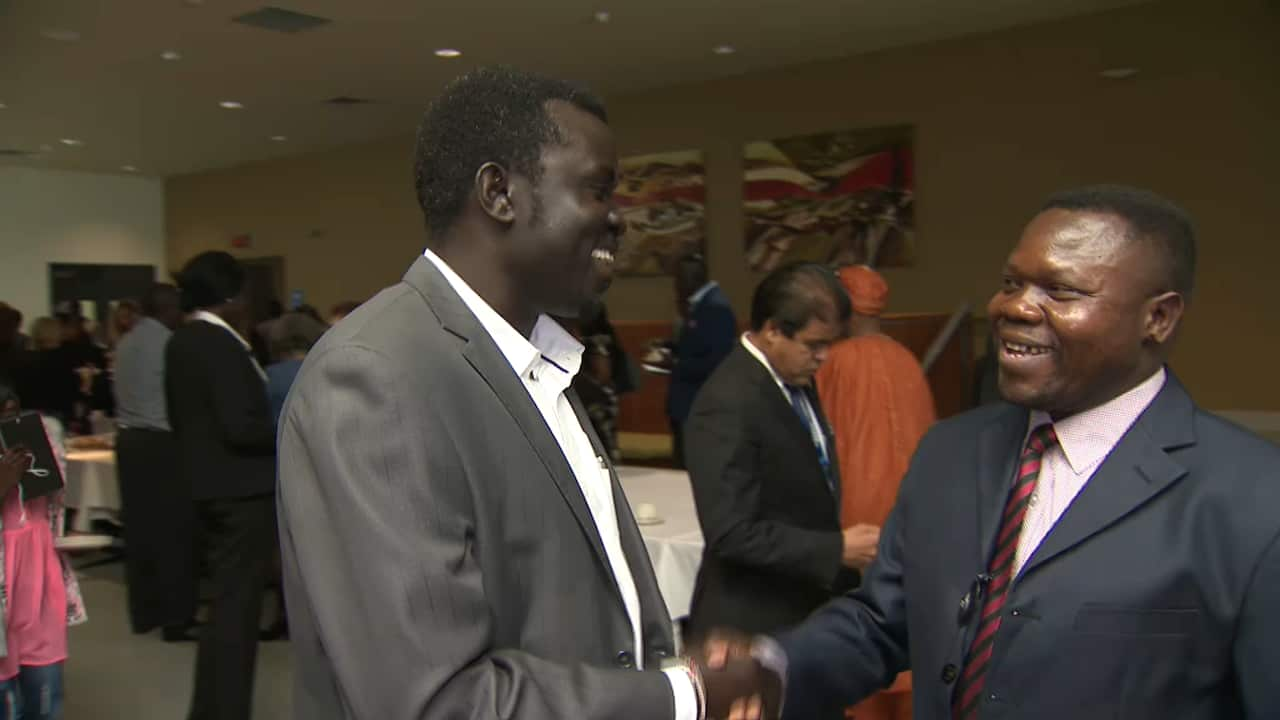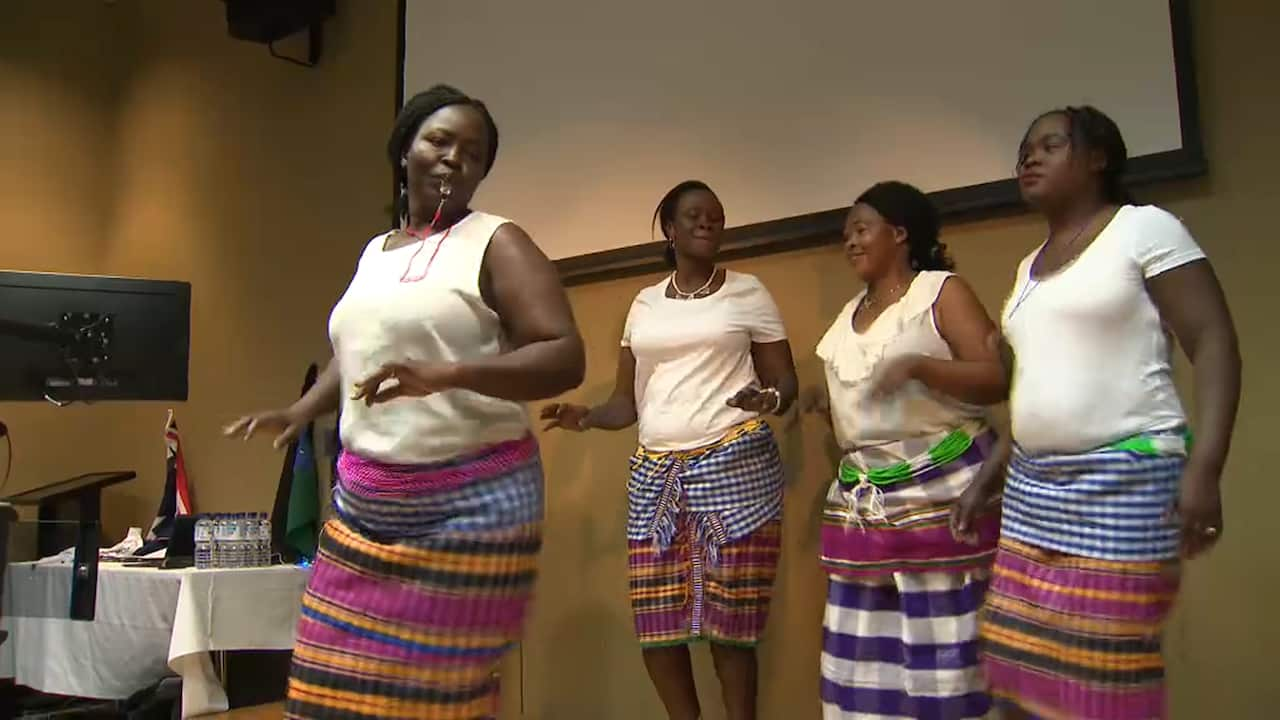South Sudanese groups from across Australia have rallied together in a historic bid to tackle problems plaguing refugee communities.
The Federation of Equatoria Community Association has brought together leaders from disparate South Sudanese organisations for a national conference to discuss strategies to deal with youth disengagement.

It is the fourth summit held by leaders since 2012.
Chairman of the organisation, Clement Laila, said the focus of this year's conference is on children struggling to stay engaged at school.
"Without unity, we cannot achieve anything," Mr Laila said.
"And you can see kids now on the street, kids are not doing well in school. Families are breaking, so we need as a community to unite."
South Sudanese 'unfairly' targeted
President of the Association, Juma Piri Piri, said it is frustrating to see members of his community unfairly targeted by segments of the media and politicians in their characterisation of Melbourne's so-called African gangs problem.
"Some community members have become a target in the mass media, if I can put it that way. And it is our role as a community to come together and support one another."
In comments seized upon by the state's politicians ahead of the Victorian election on 24 November, Home Affairs Minister Peter Dutton said in January that Victorians are “scared to go out to restaurants” because of “African gang violence”.
The issue has since received mass media coverage with Channel Seven's Sunday Night program broadcasting what it called a major investigation on the issue in July.
Former race discrimination commissioner Tim Soutphommasane described the report as "fear-mongering and racial hysteria".
'A community tarnished'
Ring Mayar, chairman of the South Sudanese Community Association of Victoria, said youth disaffection is a problem but needs to be put into context.
"We do have some wonderfully successful young people. We do have successful business people. We have a large workforce," he said.
"But the issue of criminality is one that we are grappling with, particularly with young people who are lacking direction."
He said adjusting to the school environment has been a rough transition for many refugees whose families have fled war zones.
"Children who have come from war-torn countries need support from the school, and support from the community. But the community does not have the capacity to deal with the issues," he said citing budget cuts to community initiatives.
"We see what is destroying our community and it requires all of us all to build the capacity of young people."
Statistics show Australian and New Zealand-born people committed the vast majority of crimes in Victoria between April 2017 and March 2018.
Those born in Sudan made up 1.1 per cent of the offender population, according to the Crime Statistics Agency.
Mr Mayar said with the upcoming state election, race has been used as a tool to win votes and divide members of the community.
"Rather than dealing with leaders of the community, they rather look elsewhere for people to work with them. And that has tarnished and destroyed the community," he said.
'A tremendous achievement'
Federation of Ethnic Communities Council CEO, Emma Campbell, said the contribution of the South Sudanese community groups is to be commended.
"They are doing this without funding, in their spare time alongside their work and caring responsibilities and this is a tremendous achievement for the South Sudanese and equatorial communities to come together in this way."

The conference also heard stories of the on-going trauma experienced by South Sudanese refugees who have come from a country that has been torn apart by a brutal civil war.
Family doctor Graham Poole has experienced both ends of the journey: treating new arrivals here after years witnessing patients' torment while working as a medical director in South Sudan.
"[I have witnessed] a mother fleeing the fighting having to choose which of her children to leave behind... because she cannot carry all four in her arms."

